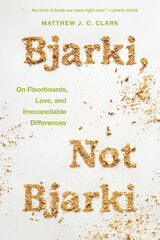
Notions of Christian love, or charity, strongly shaped the political thought of John Winthrop, Thomas Jefferson, and Abraham Lincoln as each presided over a foundational moment in the development of American democracy. Matthew Holland examines how each figure interpreted and appropriated charity, revealing both the problems and possibilities of making it a political ideal.
Holland first looks at early American literature and seminal speeches by Winthrop to show how the Puritan theology of this famed 17th century governor of the Massachusetts Colony (he who first envisioned America as a "City upon a Hill") galvanized an impressive sense of self-rule and a community of care in the early republic, even as its harsher aspects made something like Jefferson's Enlightenment faith in liberal democracy a welcome development . Holland then shows that between Jefferson's early rough draft of the Declaration of Independence and his First Inaugural Jefferson came to see some notion of charity as a necessary complement to modern political liberty.
However, Holland argues, it was Lincoln and his ingenious blend of Puritan and democratic insights who best fulfilled the promise of this nation's "bonds of affection." With his recognition of the imperfections of both North and South, his humility in the face of God's judgment on the Civil War, and his insistence on "charity for all," including the defeated Confederacy, Lincoln personified the possibilities of religious love turned civic virtue.
Weaving a rich tapestry of insights from political science and literature and American religious history and political theory, Bonds of Affection is a major contribution to the study of American political identity. Matthew Holland makes plain that civic charity, while commonly rejected as irrelevant or even harmful to political engagement, has been integral to our national character.
The book includes the full texts of Winthrop's speech "A Model of Christian Charity"; Jefferson's rough draft of the Declaration and his First Inaugural; and Lincoln's Second Inaugural.

can see the start of profound social and economic changes in early modern
Amsterdam, Civic Charity in a Golden Age explores the connections
between the developing capitalist economy, the functioning of the government,
and the provision of charitable services to orphans in Amsterdam during
the seventeenth and eighteenth centuries, the period of the city's greatest
prosperity and subsequent decline.
Anne McCants skillfully interprets details of the orphanage's expenditures,
especially for food; its population; the work records of those who were
reared there; and the careers of the regents who oversaw it. The establishment
of the orphanage itself was called for by the changing economic needs
of rapidly expanding commercial centers and the potential instability
of a government that depended on taxes from a large, politically powerless
segment of the population.
READERS
Browse our collection.
PUBLISHERS
See BiblioVault's publisher services.
STUDENT SERVICES
Files for college accessibility offices.
UChicago Accessibility Resources
home | accessibility | search | about | contact us
BiblioVault ® 2001 - 2024
The University of Chicago Press









